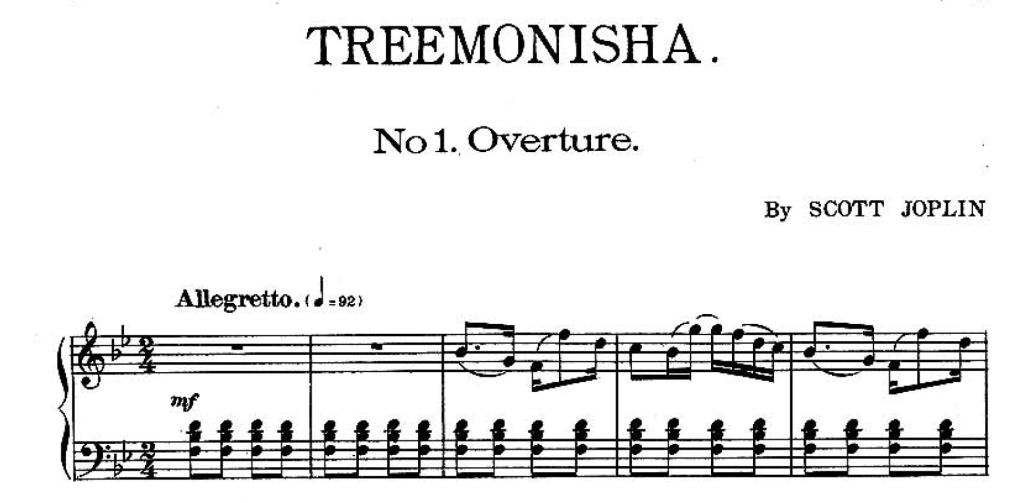Cleveland Orchestra
Daniel Reith, conductor
Mandel Concert Hall
Severance Music Center
Cleveland, OH
May 19, 2023
Joplin: Overture to Treemonisha
Perry: Short Piece for Orchestra
Still: Darker America
Herrmann: Suite from Vertigo
Chacon: Voiceless Mass
Varèse: Amériques
In one of the most intriguing entries of The Cleveland Orchestra’s wide-ranging American Dream festival, the orchestra offered a truly fascinating program of works that respond to the concept of the American dream in some fashion, unearthing selections that lie far beyond the confines of the standard repertoire. An engaging pre-concert discussion led by musicologists Kira Thurman and Douglas W. Shadle provided thought-provoking insight into the works to be performed.

An indisposed Franz Welser-Möst was obliged to bow out Friday evening (but fortunately was well enough to conduct the closing performance of La fanciulla del West the following night), leaving the reins in the able hands of assistant conductor Daniel Reith. I’ve long been intrigued by Scott Joplin’s 1911 opera Treemonisha, a major contribution to American music – and unjustly neglected. It’s really quite unprecedented for a major orchestra to perform Joplin, so kudos to the TCO for opening the evening with the opera’s overture. It began energetically with carefree abandon, contrasted by an arching lyricism and the composer’s penchant from chromaticism. The brass warmly conveyed slower, more poignant material, a theme that resurfaces in the opera in the closing A Real Slow Drag.
Julia Perry has been a fascinating discovery to this listener. It seems there’s been a resurgence of interest in her as of late here in Ohio – and rightly so, as she spent much of her life in Akron. A recent Columbus Symphony performance of Study for Orchestra was quite eye-opening, and TCO’s inclusion of the Short Piece for Orchestra was no less revelatory – a quantity which Columbus’ ProMusica also has on tap for next season. Terse, strident gestures marked Perry’s sophisticated language, given by TCO with exacting clarity. An intense, unforgiving work, ending definitively in a crash.
Perry completed formative studies abroad in Europe; likewise William Grant Still turned towards European influence in studying with Edgard Varèse (and Joplin was taught music by a German immigrant, who would introduce him to the operas of Wagner – later to become an inspiration for Treemonisha). In the pre-concert talk, it was suggested that for Black Americans, as with these three composers, the American dream was escaping, and look to Europe which was comparatively more enlightened in terms of racial oppression. TCO selected Still’s 1924 tone poem Darker America, his first major orchestral work. A generally restrained work, it opened with a lyrical gesture in the low strings, with some fine solo passages from the flute and clarinet. Blue notes shaping the melodic line caught one’s ear, sounding not unlike Gerhswin’s Rhapsody in Blue, written the same year.
At first glance, the suite from Bernard Herrmann’s score to the Hitchcock film Vertigo seemed like a misfit. But, film scores constitute a significant chapter of American orchestral music, and the film in question deals with dreams in its way. Neatly divided into three movements, the suite’s opening “Prelude” was awash in lush, colorful scoring, gleaming in cinematic brilliance. Chilling dissonances brought “The Nightmare” – a direct reference to the dreamworld – to life, while the closing “Scène d’amour” surged with lavish chromaticism, reminding one of TCO’s 2018 festival centered around Tristan und Isolde.
In 2022, Raven Chacon became the first Native American to be awarded the Pulitzer Prize for Music, granted for his remarkable work Voiceless Mass. Reduced to chamber-sized scoring for organ, flute, clarinet, bass clarinet, two percussionists, strings, and sine tones, the musicians were dispersed throughout the hall, with Reith conducting faced towards the audience, achieving a surround-sound effect. The twenty minute essay was often of meditative stasis, though a pulsating bass drum was ominous and omnipresent. With the lights dimmed, a remarkable atmosphere was sustained until matters drifted away to silence. For the indigenous population, the reality of the American dream often proved to be more of a nightmare; Chacon’s somber work gives one the space to reflect on a such a stark contrast.
After Chacon’s barren minimalism, matters turned sumptuously maximalist in Varèse’s Amériques, presented in its 1929 revision (a work also captured on TCO’s A New Century recording). A wandering alto flute solo opened, giving way as the vigor and energy of a bustling metropolis was amassed, replete with percussive bursts and screeching sirens. Thrilling orchestral effect abounded in this dizzyingly intricate tapestry, given with singular intensity.
